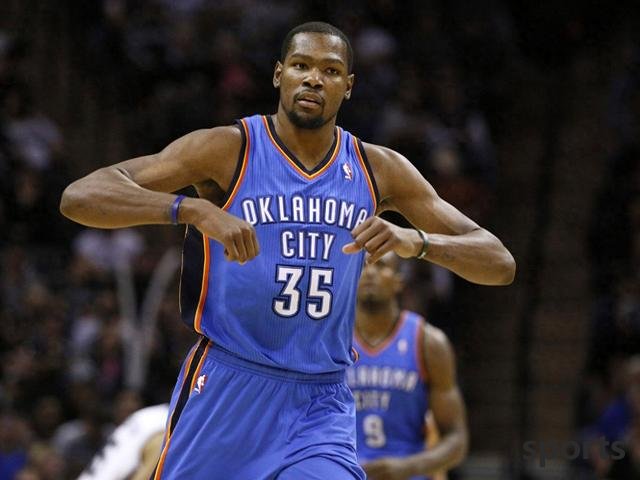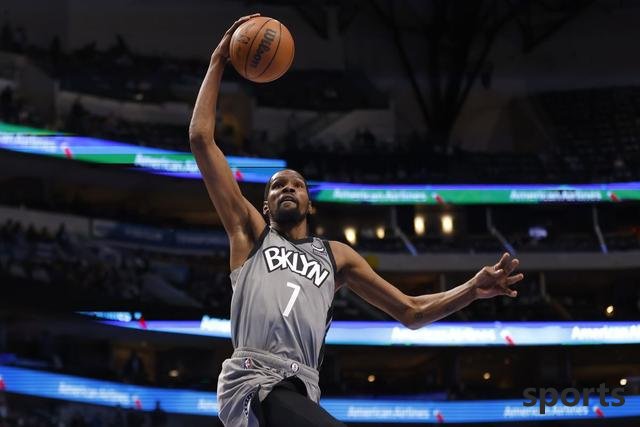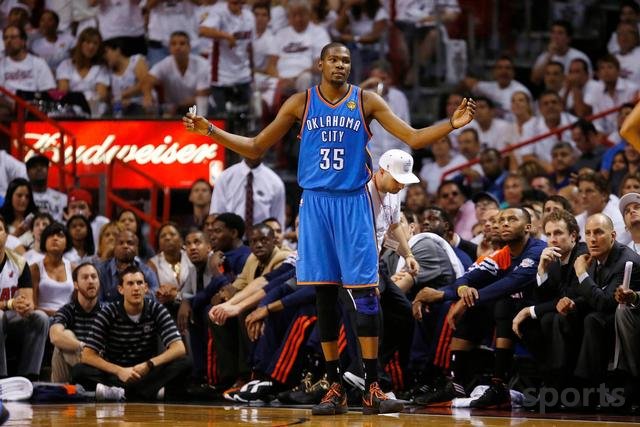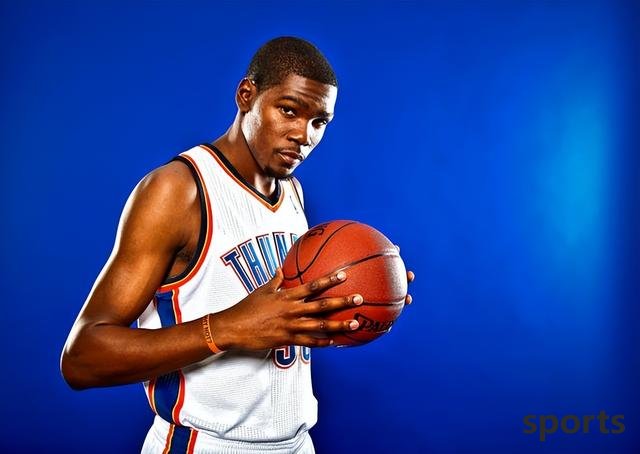Durant s five best NBA seasons
As an epoch-making scoring machine and four-time scoring champion, Kevin Durant defines the form of a super scorer in modern basketball with his unsolvable shooting feel, difficult to block height and wingspan, fire in all areas, and indiscriminate 1V1 single-handed scoring ability. From the young heroes of the Thunder period, to the ultimate mercenary of the Warriors dynasty, to the breaking point between the Nets and the Suns, the name of "Death" is accompanied by every stage of his career, and is known for being cold-blooded and efficient. No matter how the team's role changes, Durant is always the most terrifying end point on the court. Outside the court, Mr. Du has always captured the hearts of many fans with his affinity. In this article, the author will focus on Durant's brilliant career, comprehensively integrate data, honors, achievements, season positioning and other dimensions, select and review his five most powerful NBA seasons, so that you can relive the grandeur of Durant at the peak. If you like this article, it’s okay to like it and encourage it. 1. 2013-14 season (Oklahoma City Thunder) Data: 32.0 points, 7.4 rebounds, 5.5 assists and 1.3 steals, shooting percentage 50.3%/39.1%/87.3% Honors: Regular season MVP, scoring champion, best team, All-Star MVP Key battles: 41 consecutive games scored 25+ tied Jordan's record; scored 54 points against the Warriors; G5 scored 17 points in overtime against the Spurs in the Western Conference Finals Analysis: The peak display season of personal offensive skills. With Westbrook absent due to injuries, Durant took on the team with his historic scoring output and efficiency (real shooting percentage of 63.5%) and won the only MVP in his career. His singles with the ball, unballed shooting, and passing vision are all in a state of perfection, which explains what a scorer is "unpreventable". Although he lost to the final champion of the Spurs, his personal performance was impeccable. 
2. 2016-17 season (Golden State Warriors)
Data: 25.1 points, 8.3 rebounds, 4.8 assists, 1.1 steals and 1.6 blocks, shooting percentage 53.7%/37.5%/87.5%
Honors: Championship, MVP in the Finals, Best Second Team, All-Stars
Key battles: G3 in the Finals against the Cavaliers' key three-pointer; G5 in the Finals scored 39 points to lock in the championship; the real hit rate in the playoffs is as high as 68.3%
Analysis: The perfect combination of efficiency and team achievements. After joining the Warriors, Durant was in a fishy foot in the historical offensive system and his efficiency reached the peak of his career. The playoffs turned into the ultimate killer, averaging 28.5 points per game, shooting percentage of 55.6%, three-point shooting percentage of 44.2%, and free throw shooting percentage of 89.3%. His stable output and fatal blow ability at critical moments (especially in the finals) made his first contribution to the Warriors' re-winning championship and won the FMVP.

3. 2020-21 season (Brooklyn Nets)
Data: 26.9 points, 7.1 rebounds, 5.6 assists, shooting percentage 53.7%/45.0%/88.2%
Honors: The All-Second Team, All-Stars, Key Battle: G5 in the Eastern Conference Semi-Finals against the Bucks scored 49 points, 17 rebounds and 10 assists (the only 45+15+10 in history); 48 points in the second round of the playoffs, analysis: The dominant declaration after returning from a serious injury. After a serious injury to a ruptured Achilles tendon, Durant returned in an incredible state and played one of the most efficient regular seasons in his career (180 Club Edge). The playoffs were full of fire, especially after Harden and Irving were injured one after another, they played an epic individual performance against the Bucks (average of 35.4 points per game), almost dragging the series into a tiebreak with their own strength. This season proves that the tenacity and scoring ability of "Death" have not diminished at all.

4. 2011-12 season (Oklahoma City Thunder)
Data: 28.0 points, 8.0 rebounds, 3.5 assists, 1.3 steals and 1.2 blocks, shooting percentage 49.6%/38.7%/86.0%
Honors: Scoring champion, All-Stars, Finals
Key battles: Western Conference Finals G4 vs. Spurs 18 points in the final quarter of the Spurs; G1 scored 36 points against the Heat in the Finals
Analysis: The youth storm swept the league's leader. Durant was crowned the scoring champion for the third consecutive year, leading the young Thunder Three Young Masters to defeat the defending champions Mavericks and veteran Spurs all the way, and reached the finals for the first time. His playoff performance (average of 28.5 points per game) is a step further than the regular season, and his ability to take over the game at critical moments is fully demonstrated. Although it lost to the Heat Big Three in the Finals, it established its position as the top superstar in the league.

5. 2009-10 season (Oklahoma City Thunder)
Data: 30.1 points, 7.6 rebounds, 2.8 assists, 1.4 steals and 1.0 blocks, shooting percentage of 47.6%/36.5%/90.0%
Honors: Scoring King, Best Team, All-Stars Key Games: Scoring 25+ in 29 consecutive games; Scoring 45 points in a single game against the Nuggets; G1 against the Lakers in the first round of the playoffs 32 points
Analysis: A shocking sequel to the youngest scoring champion in history. Durant, who is only 21 years old, won the scoring champion with his unstoppable scoring explosive power (30.1 points per game), becoming the youngest scoring champion in history (21 years and 197 days). Under his leadership, the Thunder transformed from a bottom-skinned team to a 50-win team, and fought six games with defending champion Lakers in the playoffs. This season marks Durant's official ranking among the league's top superstars, and his scoring talent has attracted the attention of the world.
- Recent Posts
-
- Li Yueru s WNBA season reimbur
- Only 1 game broke out in 6 gam
- Rivers confessed to Redick aff
- Brownie became the Lakers bes
- Timberwolves 0-2 Thunder, can
- First-level malicious foul! Te
- 20 minutes of hit 26+4+5! Donc
- Good news for Guangdong team,
- The Chinese Men s Basketball T
- Kobe s widow Vanessa was revea
- Hot Posts
-
- After signing with the Trail B
- "NBA Finals G6" Thunder VS Pac
- Bill wants to complete a buyou
- Thunder substitute Caruso: Gre
- 2-1 in one game! WTA Berlin St
- First-time pick, 25th first-ro
- After the NBA Clippers trade,
- The latest news of the Warrior
- Rockets officially announced 5
- The Suns are finally going to
- Outrageous! The truth about th
- If 13 million is received, run
- US media questioned Yang Hanse
- Paul George undergoes surgery
- Is Paul expected to join the L
- On May 2, Pelinka s latest int
- 8 first rounds + 60 million sp
- Anthony: I ve been through man
- Cavaliers President: Mobley s
- The Warriors "beat" Gobert by
- search
-
- Links
-
